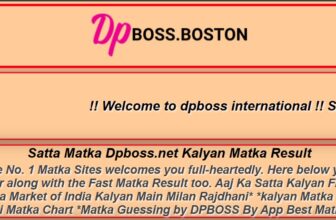
Navigating the world of music publishing can be daunting, especially for emerging artists and songwriters. Whether you’re exploring different types of music publishing deals or learning about how music publishers make money, it’s essential to approach negotiations with clarity and confidence. This guide will help you understand the key aspects of music publishing rights and how to secure a deal that aligns with your goals.
Understanding the Basics of Music Publishing Deals
Before diving into negotiation strategies, it’s important to grasp the fundamentals of music publishing explained. Music publishing rights refer to the legal ownership of a song’s composition, including the lyrics and melody. These rights are separate from the rights to the sound recording, which is typically owned by the label or the artist themselves.
Music publishing deals are agreements where a songwriter or composer grants certain rights to a publisher in exchange for services such as licensing, royalty collection, and promotion. Publishers play a crucial role in managing your catalog and ensuring you earn revenue from various streams, including performance royalties, mechanical royalties, and sync licensing. Understanding these basics is critical when deciding how to publish my music effectively.
Key Types of Music Publishing Deals
There are several types of music publishing deals, each with unique terms and conditions:
- Full Publishing Deals: The publisher takes full ownership of the publishing rights and collects all royalties. They typically pay the songwriter a percentage (e.g., 50%) of the revenue generated.
- Co-Publishing Deals: The songwriter retains a portion of the publishing rights (usually 50%) while granting the other half to the publisher. This is a common choice for artists who want to maintain partial ownership.
- Administration Deals: The artist retains full ownership of the rights while the publisher provides administrative services such as royalty collection and licensing for a fee or percentage.
- Single Song Agreements: These deals apply to individual songs rather than an artist’s entire catalog, offering flexibility for songwriters.
Each deal type has implications for your publishing rights in music, and understanding these nuances is vital for negotiating effectively.
Tips for Negotiating a Fair Deal
- Understand Your Worth Before entering negotiations, evaluate your music catalog’s potential. If you have a hit song or an established following, you have more leverage to negotiate favorable terms. Research how music publishers make money and consider how your work fits into their revenue streams.
- Know the Terms and Royalties Familiarize yourself with key terms in publishing agreements, such as:
- Advance: An upfront payment against future royalties.
- Royalty Splits: How earnings are divided between you and the publisher.
- Term: The duration of the agreement.
Understanding these details helps ensure you’re not undervaluing your work.
- Retain Some Rights If possible, negotiate to keep a portion of your music publishing rights. This is particularly important in co-publishing and administration deals, as it allows you to retain creative and financial control.
- Ask About Sync Licensing Opportunities Sync licensing (placing your music in TV, film, or commercials) can be a lucrative income stream. Ensure your publisher has the resources and network to secure these opportunities for you.
- Hire an Expert Publishing contracts are complex. Working with an experienced entertainment lawyer or manager ensures that you understand the implications of every clause. They can also help negotiate terms that protect your long-term interests.
- Negotiate Exit Clauses Ensure the contract includes fair exit clauses in case the partnership doesn’t meet your expectations. For example, if the publisher fails to secure a certain number of placements or revenue within a specified period, you should have the option to terminate the agreement.
How Music Publishers Make Money and Why It Matters
One of the most important aspects of negotiating is understanding how music publishers make money. Publishers earn revenue by monetizing your music publishing rights in the following ways:
- Performance Royalties: Earnings from public performances of your songs, such as radio play, live performances, and streaming platforms.
- Mechanical Royalties: Payments for physical or digital reproductions of your music.
- Sync Licensing Fees: Income from licensing your music for use in visual media.
- Print Royalties: Revenue from sheet music sales.
By knowing these income streams, you can negotiate terms that ensure you receive a fair share of the profits.
Common Pitfalls to Avoid
- Signing Too Quickly Many new artists rush to sign deals without fully understanding the terms. Take your time to review the agreement and seek expert advice.
- Overlooking Royalties Ensure the contract specifies clear royalty splits. Misunderstandings in this area can lead to significant financial losses.
- Ignoring Contract Length Avoid overly long contracts that lock you into unfavorable terms. A shorter term with renewal options is often better for artists.
- Failing to Protect Future Work Some contracts grant publishers rights to all your future compositions during the agreement term. Negotiate to limit the scope of the deal.
Conclusion
Negotiating a music publishing deal is a critical step in establishing your career as an artist or songwriter. By understanding the types of music publishing deals, how to publish your music, and the intricacies of music publishing explained, you can approach the process with confidence. Remember, your publishing rights in music are valuable assets, and securing a fair deal can open doors to new opportunities while ensuring you receive the compensation you deserve. Take the time to research, seek expert advice, and make informed decisions to set yourself up for long-term success in the music industry.







